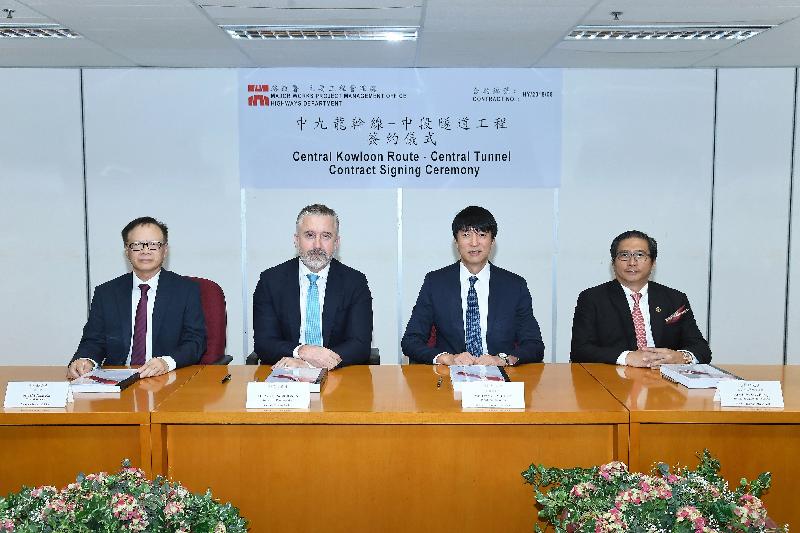The Government today (July 26) promulgated the Hong Kong Cancer Strategy (Cancer Strategy) with a view to reducing the cancer burden of the local population and improving the quality of life and survivorship of cancer patients through setting work priorities and directions.
Speaking at a press conference, the Secretary for Food and Health, Professor Sophia Chan, said the Government is committed to stepping up the prevention and control of cancer. The Cancer Strategy is the first holistic plan for cancer prevention and control for Hong Kong. The goal is to reduce the hit rate of cancer, to provide effective and timely cancer screening and treatment to all in need, and to offer reassuring survivorship support services to survivors and their carers.
"The Cancer Strategy focuses on the policy and the work on cancer prevention and control, which is in line with the Government's commitment in developing primary healthcare. Through people-oriented measures, allocation of resources and collaboration with community partners, we seek to enhance cancer prevention and to reduce the agony and anxieties among those who are affected by cancer," she said.
Cancer is the top killer in Hong Kong. In 2018, cancer claimed over 14 000 lives (provisional figure), accounting for about one-third of the total deaths of the local population. In view of the overall rising trend in incidences of cancers and having regard to the World Health Organization's recommendations, international practices and local situations, the Cancer Coordinating Committee (the Committee) chaired by the Secretary for Food and Health, consolidated and enhanced a comprehensive strategy on cancer prevention and control.
The directions laid down in the Cancer Strategy include reducing risk factors leading to cancer and providing evidence-based screening; seeking early detection and diagnosis; offering timely and effective treatment; strengthening survivorship support to cancer survivors; providing palliative and end-of-life care; investing in technology; enhancing the collaboration among relevant bureaux, government departments, the Hospital Authority, community organisations and civil society; as well as enhancing surveillance and research capabilities. The goal is to better prevent and control various cancers through these directions.
Professor Chan said, "The promulgation of the Cancer Strategy is an important milestone in our united fight against cancer. It is neither the end nor the beginning. I would like to thank members of the Committee, a number of experts and professionals, various organisations and their representatives for their valuable insights and efforts. I hope the community would continue to support the implementation of the Cancer Strategy."
Phased outcomes in the seven aspects of the Cancer Strategy, namely cancer surveillance, prevention and screening, early detection and diagnosis, timely and effective treatment, technology and support, survivorship and palliative care as well as cancer research, are expected to be achieved by 2025. The details are set out in the Annex.
The Committee was established in 2001 comprising cancer experts and doctors from the public and private sectors, academics and public health professionals, to advise the formulation of strategies on cancer prevention and control, and steer the direction of work covering prevention and screening, treatment, surveillance and research.
The Cancer Strategy is available at Food and Health Bureau's website (www.fhb.gov.hk/en/press_and_publications/otherinfo/190700_hkcs/index.html).
